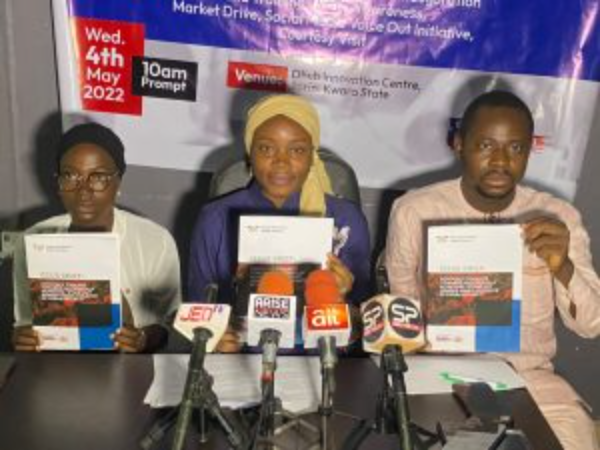A non-governmental organization (NGO), Rising Child Foundation, says about 200 cases of domestic violence against women and girls were recorded in Kwara between January and March 2022.
Head of the foundation, Taibat Hussein, made the disclosure at a news conference to launch the Kwara Gender-Based Violence (GBV) project, on Wednesday in Ilorin.
She said that the state command of Nigeria Security and Civil Defence Corps (NSCDC) and National Human Rights Commission (NHRC) had raised the alarm over the growing incidence of violence against women in the state.
Hussein quoted NSCDC as saying that it received reports of GBV almost on a daily basis in the state.
She called on the government and other relevant stakeholders to invest in capacity building for GBV service providers to meet the increasing demands for support by the victims.
“We need to create more support centres where concerned individuals and victims of GBV can report their cases and seek help in order to increase access to life-saving services for the victims.”
“At present, there is a low conviction rate for GBV in the country and this has contributed to emboldening the perpetrators to continue these heinous crimes against women and girls.”
“For instance, the Minister of Women Affairs and Social Development recently disclosed that out of the more than 5,100 cases of GBV currently in court, only 16 convictions have been secured”
“There is, therefore, the need for our judiciary to prioritize the prosecution of perpetrators of GBV. In this regard, special courts can be created to entertain GBV cases so as to ensure swift dispensation of justice,” Hussein said.
She called on security agencies to handle GBV cases professionally, without shaming the victims.
Hussien also urged parents to desist from preventing their abused children from speaking up under the guise of feeling ashamed.
“We must strengthen the adoption and implementation of legal frameworks that safeguard women and girls against GBV and provide justice for victims as well as creation of registry for perpetrators in all the local government areas in the country.
“Religious institutions should also condemn every form of gender-based violence and preach against the menace.
“Similarly, religious and community leaders should work on reforming some of our prevalent socio-cultural and traditional norms that aid GBV.
“Institutions of learning should have clear-cut policies against GBV to proteNational Human Rights Commission (NHRC)ct their female members and set up adequate measures and mechanisms for victims to report any incidence of GBV,” she said.
Hussein stated that as part of efforts to prevent and eliminate violence against women and girls in Kwara, the foundation would unveil its fact-sheet on GBV.
This, she said, would serve as an advocacy tool for any organization or individual interested in GBV cases.
